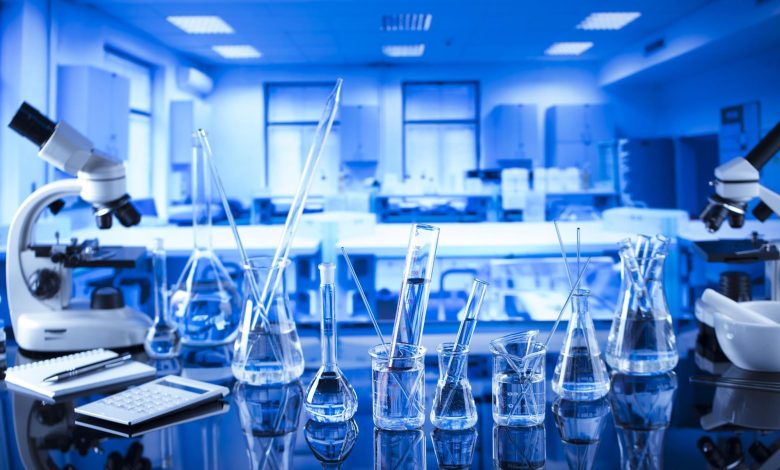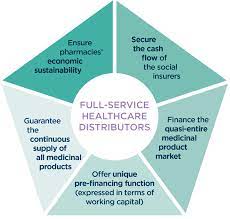Sustainability in Lab Technology: Eco-Friendly Solutions and Practices

Introduction:
Sustainability has become a pressing concern across all sectors, including scientific research laboratories. As laboratories consume significant resources and generate substantial waste, adopting eco-friendly solutions and practices is imperative to mitigate environmental impact. This article explores sustainability initiatives in lab technology, highlighting eco-friendly solutions and practices that promote environmental stewardship and reduce carbon footprint.
1. Energy-Efficient Laboratory Equipment:
One of the primary areas of focus for sustainability in lab technology is the adoption of energy-efficient laboratory equipment. Modern instruments such as centrifuges, refrigerators, and autoclaves are designed to minimize energy consumption without compromising performance. Energy-efficient models utilize advanced insulation, LED lighting, and variable-speed motors to reduce electricity usage, resulting in lower operating costs and reduced greenhouse gas emissions.
2. Green Lab Design and Construction:
The design and construction of green laboratories play a crucial role in reducing environmental impact throughout the lifecycle of the facility. Sustainable building practices, such as utilizing recycled materials, maximizing natural lighting, and implementing efficient HVAC systems, help minimize energy consumption and reduce waste generation. Additionally, incorporating green spaces and sustainable landscaping enhances air quality, biodiversity, and employee well-being.
3. Water Conservation Strategies:
Water conservation is another key aspect of sustainability in lab technology. Implementing water-efficient equipment, such as vacuum pumps and cooling systems, reduces water consumption during laboratory operations. Furthermore, recycling and reusing water for non-potable purposes, such as irrigation or equipment cooling, help conserve freshwater resources and minimize wastewater generation.
4. Waste Reduction and Recycling Programs:
Laboratories generate a substantial amount of waste, including chemical reagents, plastic consumables, and hazardous materials. Implementing waste reduction and recycling programs is essential to minimize environmental impact. Laboratories can prioritize the use of reusable glassware, recycle plastic consumables, and segregate hazardous waste for safe disposal or recycling. Additionally, implementing waste minimization strategies, such as purchasing in bulk and sharing resources, helps reduce packaging waste and minimize overall waste generation.
5. Sustainable Procurement Practices:
Sustainable procurement practices play a critical role in promoting environmental responsibility throughout the supply chain. Laboratories can prioritize purchasing products and consumables that are certified as eco-friendly, recyclable, or biodegradable. Additionally, sourcing materials from local suppliers reduces transportation-related emissions and supports the local economy. Collaborating with vendors to explore sustainable alternatives and implementing green procurement policies help align purchasing decisions with sustainability goals.
6. Education and Outreach Initiatives:
Educating laboratory staff and researchers about sustainability best practices fosters a culture of environmental stewardship and responsibility. Providing training on waste segregation, energy conservation, and sustainable laboratory practices empowers individuals to make informed decisions and adopt sustainable behaviors. Furthermore, engaging with the broader scientific community through seminars, workshops, and outreach events raises awareness about the importance of sustainability in laboratory operations and encourages collaborative efforts to address environmental challenges.
7. Continuous Improvement and Innovation:
Sustainability in lab technology is an ongoing journey that requires continuous improvement and innovation. Laboratories can leverage technology and innovation to develop greener alternatives, optimize resource utilization, and minimize environmental impact. Embracing emerging technologies, such as green chemistry and renewable energy sources, fosters creativity and drives positive change towards a more sustainable future.
Conclusion:
Sustainability in lab technology is essential for mitigating environmental impact, conserving resources, and promoting environmental stewardship. By adopting energy-efficient equipment, implementing green lab design principles, conserving water, reducing waste, practicing sustainable procurement, educating stakeholders, and fostering innovation, laboratories can minimize their carbon footprint and contribute to a healthier planet. Embracing sustainability not only benefits the environment but also enhances operational efficiency, reduces costs, and fosters a culture of responsibility and innovation in scientific research.




